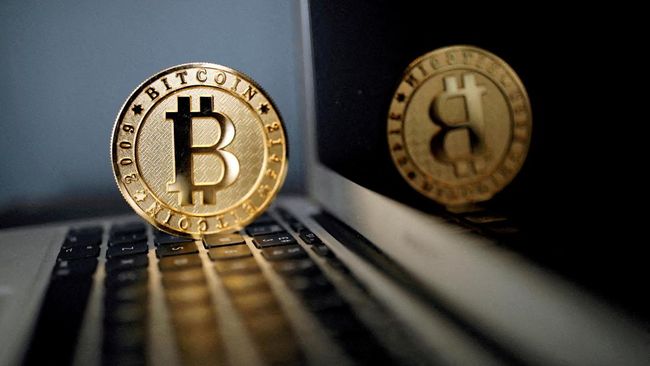Jakarta, CNBC Indonesia – Once known for its stable and investment-friendly banking system, Lebanon has gone bankrupt due to hyperinflation. This forced banks to make huge cuts in dollar withdrawals.
To make ends meet in a shattered financial system, some Lebanese have started mining bitcoins or storing wealth using cryptocurrency or cryptocurrency.
CNBC International reported that many Lebanese residents have considered cryptocurrency as a savior to survive this time.
Some mine digital tokens as their sole source of income while looking for work. Others organize secret meetings via Telegram to exchange ties stable coins with United States Dollars (US) to buy groceries.
Although the form of adoption of cryptocurrencies varies depending on the person and the circumstances, almost every local in the country craves a connection with money that is considered reasonable.
“Bitcoin has really given us hope,” said Gebrael, an artist who lives in his hometown of Beit Mery, a village eleven miles east of Beirut.
Gebrael said he had lost his job and needed to find another way to get money fast. In the spring of 2020, Gebrael said, banks were closed and local residents were prevented from withdrawing money from their accounts.
He said accepting cash via international bank transfer was also not a great option, as the service would withdraw US dollars from the sender and deliver Lebanese pounds to the recipient at a rate far below market value.
“I would have lost about half the value,” Gebrael explained of the experience. “That’s why I look at bitcoin, it’s a good way to get money from abroad.”
When Gebrael needs cash to pay for groceries and other essentials, he uses a service called FixedFloat to exchange some of the bitcoins he earns through his freelance work with tether, also known as USDT, a stablecoin pegged to the US dollar.
After that, he went to one of the two Telegram groups to start tether trading with US dollars. Although tether doesn’t offer the same appreciation potential as cryptocurrency On the other hand, tether is the currency Lebanese still believe in.
Each week, Gebrael found someone willing to trade and they set up a face-to-face meeting. Since he often traded with foreigners, Gebrael usually chose public spaces, such as coffee shops or the ground floor of residential buildings.
The exchanges via the Telegram groups that Gebrael uses range from $ 30 to exchanges of hundreds of thousands of dollars.
The World Bank itself claims that Lebanon’s economic and financial crisis is one of the worst to have occurred anywhere on the planet since the 1850s. The United Nations estimates that 78% of the Lebanese population now falls below the poverty line.
Meanwhile, analysts at Goldman Sachs estimate losses at local banks to be around $ 65 billion to $ 70 billion, four times the country’s entire GDP. Fitch expects inflation to rise to 178% this year or worse than in Venezuela and Zimbabwe.
The International Monetary Fund (IMF) is also in talks with Lebanon. The global lender is considering a $ 3 billion loan with many conditions attached.
Next article
The ‘ghost’ of inflation raging in the world, this is the highest country
(ha / ha)


